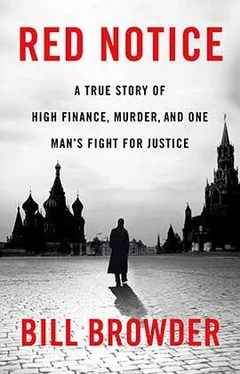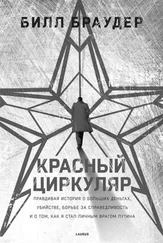Even though my father was one of America’s brightest young mathematicians, he was still the son of Earl Browder. When President Truman instituted the peacetime draft after the Second World War, Felix asked for a deferment, but his employer, the Institute for Advanced Study in Princeton, refused to write a letter for him. None of his superiors wanted to be on record defending the son of a famous communist. With no deferment on file, Felix was promptly drafted and started serving in the army in 1953.
After basic training, my father was assigned to an army intelligence unit at Fort Monmouth, New Jersey, where he worked for several weeks before his commanding officer noticed his last name. The wheels turned quickly then. Late one night, Felix was yanked from his bunk, thrown into a military transport, and taken to Fort Bragg, North Carolina, where he was assigned to pump gas at a service station on the edge of the base for the next two years.
When he was discharged in 1955, he applied for the first academic job opening he found: a junior-professor position at Brandeis University. The Brandeis faculty couldn’t believe their luck at having a top Princeton mathematician applying for the job. But when they presented their recommendation, the board of trustees balked at the idea of supporting the son of the ex-leader of the American Communist Party.
At the time, Eleanor Roosevelt was chair of the board, and even though her husband was the one responsible for imprisoning my grandfather, she said that it would be the most «un-American thing we could do to deny a great scientist his profession because of who his father was». Felix ultimately got the job, which led to positions at Yale, Princeton, and the University of Chicago, where he eventually became chairman of the math department. He had a long and successful career, and in 1999 President Clinton awarded him the National Medal of Science, the top mathematics honor in the country.
My mother’s story was no less remarkable. Eva was born to a Jewish single mother in Vienna in 1929. By 1938 it was obvious that the Nazis were targeting Jews, and any Jew who had the opportunity got as far away from Europe as possible. Because so many people were fleeing, getting a US visa was almost impossible, and my grandmother made the heartbreaking decision to put my mother up for adoption just so she could have the chance of a better life in America.
The Applebaums, a nice Jewish family from Belmont, Massachusetts, agreed to take in Eva. At the age of nine, she traveled alone across Europe by train, got on a steamship, and sailed to America to meet her new family. When she got there, she was amazed at the sanctuary into which she’d stumbled. For the next few years my mother lived in a comfortable house with her own room, a cocker spaniel, a mowed lawn, and no genocidal war raging around her.
As Eva was adjusting to her new life, my grandmother Erna managed to escape Austria, getting as far as the United Kingdom. The separation from her daughter was unbearable, and she spent every day trying to get a US visa so she could reunite with Eva. After three years, the visa finally came. She traveled from England to Boston and showed up on the Applebaums’ doorstep in Belmont, expecting a joyful reunion. However, my grandmother was greeted by a child she barely knew, an American girl who had become so comfortable with the Applebaums that she didn’t want to leave. After a traumatizing struggle, my grandmother prevailed, and the two of them moved into a one-room tenement in Brookline, Massachusetts. My grandmother worked eighty hours a week as a seamstress to support them, but they were so poor that their main luxury was sharing a tray of roast beef and mashed potatoes once a week at a local cafeteria. Going from poverty to comfort and then back to poverty was so traumatic that, to this day, my mother collects sugar packets and sneaks rolls from restaurant breadbaskets into her handbag. In spite of her meager teenage life, my mother excelled academically and was offered a full scholarship to MIT. She met Felix there in 1948, and within a few months they were married.
I was born in 1964 into this strange, academic, left-wing family. The main topics of conversation at the dinner table were mathematical theorems and how the world was going to hell because of crooked businessmen. My older brother, Thomas, followed in my father’s footsteps and attended the University of Chicago — at the age of fifteen . He graduated (Phi Beta Kappa, of course) with a degree in physics. He went straight into a PhD program at the age of nineteen, and is now one of the world’s top particle physicists.
I, on the other hand, lived on the opposite end of the academic spectrum. When I was twelve, my parents announced that they were taking a yearlong sabbatical and gave me the option of joining them or going to boarding school. I chose the latter.
Feeling guilty, my mother allowed me to choose whichever school I wanted. Since I wasn’t interested in academics but was interested in skiing, I looked up schools that were close to ski areas and found a tiny one called the Whiteman School, located in Steamboat Springs, Colorado.
My parents were so involved in their own academic world that they hadn’t bothered to conduct any due diligence on this school. Had they done so, they would have discovered that at the time Whiteman was a less-than-selective school that attracted a number of problem students: kids who had been kicked out of other schools or had problems with the law.
In order to attend this boarding school I had to skip eighth grade, and so I arrived at the Whiteman School as a small thirteen-year-old, the youngest and smallest student there. When the other kids saw this scrawny boy dressed in a blue blazer, they immediately saw a victim. On my first night, a band of students came to my room and started rummaging through my drawers, taking whatever they wanted. When I objected, they jumped me, held me down, and chanted over and over, «Time for the titty-twisters, Billy Browder! Time for the titty-twisters!»
This scene played out night after night for the first few weeks. I was bruised and humiliated, and every night when the lights went out, I was terrified of the horrors these kids had in store for me.
My mother came for a visit at the beginning of October. Out of pride, I hadn’t told her anything about what was going on. I hated all of it, but I thought I could take it.
As soon as I got in my mother’s car to go to dinner, though, I broke down.
Alarmed, she asked what was going on.
«I hate it here!» I yelled through tears. «It’s terrible!»
I decided not to tell her about getting beat up every night or the titty-twisters, and I didn’t know whether she suspected any of it, but she said, «Billy, if you don’t want to stay here, just say so. I’ll take you back to Europe with me».
I thought about it and didn’t give her an answer right away. As we got closer to the restaurant, I decided that while returning to the warm bosom of my mother sounded like the most appealing thing in the world at that moment, I didn’t want to walk away from Whiteman a defeated loser.
We got a table at the restaurant and ordered our food. I calmed down as we ate, and halfway through the meal I looked at her and said, «You know, I think I’ll stay. I’ll make it work».
We spent the weekend together away from school, and she dropped me off on Sunday night. After saying good-bye, I returned to my room, and as I passed the sophomore bunk area, I could hear a pair of boys hissing, «TTs for BB, TTs for BB».
I started walking faster, but the two boys got up and followed me. I was so full of anger and humiliation that, just before turning the corner into my room, I spun and lunged at the smaller boy. I hit him square in the nose. He fell down and I got right on top of him and kept punching him and punching him, blood spattering on his face, until his friend grabbed me by the shoulders and threw me aside. The two of them then gave me a good beating before the housemaster showed up to stop the fight.
Читать дальше












